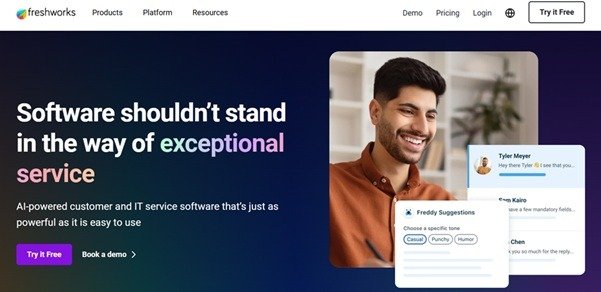Business
10 Reasons Why You Need to Understand SEO Before Building Your Website
Understanding SEO before building your website ensures it is visible, user-friendly, and aligned with how search engines rank content. Integrating SEO early, you avoid costly mistakes, improve long-term performance, and build a stronger foundation for sustainable online growth.

Having a website is a necessity for any business. However, most businesses dive into creating a visually stunning website representing their brand without understanding how search engines work.
68% of online experiences start with search engines, making SEO essential. SEO isn’t just about keywords; it is the foundation to make sure your website aligns with how users search online and how search engines rank content to increase visibility, traffic, and potential customers.
Even the most visually designed website may fail to attract visitors or generate leads without SEO. Understanding SEO before building your website is crucial for establishing a successful online presence, whether you’re a business owner, web designer, or marketer.
What Is SEO and How Does It Work?
SEO (Search Engine Optimization) is a practice that improves a website’s visibility to the people searching for products or services relevant to your business on search engines like Google and Bing. When your web pages are visible to people, they garner attention and attract prospective and existing customers to your business. In essence, SEO will also ensure that search engines understand your content and match it with the user to deliver relevant and valuable results based on their search queries.
SEO can be applied to any website, whether it promotes products, offers services, or shares expert knowledge on a specific topic. Here are 10 reasons why understanding SEO is important before you build any type of website.
1. It Helps to Understand Your Target Audience
As a business, you will surely identify your target audience. When planning to have your own website, SEO will help you identify them by analyzing search behavior and keyword data.
According to GE Capital’s research, 60% of consumers start their research on search engines before visiting a website. By doing SEO, you will ensure that your website content aligns with these users’ needs, increasing the chance to be seen on their search results.
2. It Builds the Right Website Structure
As mentioned earlier, even the most visually appealing website may fail to attract visitors or generate leads, especially if it lacks a proper structure. An unstructured website will make it difficult for search engines to crawl and index, hindering visibility and engagement and also confusing users.
SEO principles will guide you in creating logical hierarchies that will make it easy for users and search engines to navigate your website. It encourages the following:
- Navigation menus to logically group pages under categories
- Breadcrumb navigation to help users and bots understand the relationship between pages
- Internal linking to connect related pages, which improves crawlability
Ideally, a well-structured website will only take users a few clicks, no more than three–to reach their preferred page. A website like Samsung’s will be a great example. On their website, there are a few categories and a search tool that helps users not to get lost or easily find the products they are looking for.
According to the Search Engine Journal, website architecture can help a website rank higher in SERPs by improving crawlability and indexability, establishing topical authority, and creating a better user experience.
3. It Helps in Finding the Best Keywords
Keywords are what help the website rank in search engines. The target audience uses keywords to search for products; businesses should use them to stay relevant and visible.
Keyword research tools like Ahrefs, Google Keyword Planner, or SEMrush can be used to identify high-value keywords based on:
- The number of times a keyword is searched (search volume).
- Ensuring the keyword aligns with your audience’s intent (relevance).
- How difficult it is to rank for a keyword (keyword difficulty).
These tools allow businesses to uncover long-tail keywords—specific phrases with lower competition but higher conversion potential—and analyze competitors’ strategies to identify keyword gaps and opportunities.
Take Freshworks, for example, which used SEO to generate quality leads. They target keywords that focus on the user’s search intent. With the help of Ahrefs, they were able to identify related searches and use them to create a long content piece, which led to an increased lead of 9.7% every month.
4. It Facilitates Competitive Analysis
SEO helps you to identify and analyze your competitors for your own website improvement with the help of tools. SEO tools like SEMrush and Ahrefs can help you see the keywords your competitors are targeting and for which they rank. This will help you identify untapped opportunities on your end.
In addition, you may also identify gaps in their content where there’s a lack of depth and relevance and use this to create more comprehensive and valuable content on your website. You may also utilize these tools to evaluate your competitors’ backlinks, discover the high-quality sites they are linking to, and build relationships with those domains.
5. It Enables Creating High-Quality, SEO-Optimized Content
Content that lacks keyword targeting, proper structure, or clear intent can confuse search engines, which decreases the chance to rank. It also results in low engagement with users and higher bounce rates.
Content that is specifically SEO-optimized serves both users and search engines. It addresses users’ intent while adhering to the best practices to ensure visibility on search results, engagement with users, and higher conversions.
SEO-optimized content should have clear headings and subheadings for readability, integration of target and semantically related keywords without overstuffing, and should answer common user questions or solve a problem.
Neil Patel worked with a client in a financial niche by identifying in-depth gaps in content to create new content and refresh the old content to be competitive in search results. Along with other SEO strategies, the client’s website became a top performer in its niche.
6. It Prevents Costly SEO Mistakes
Building a website without understanding SEO can lead to mistakes that can damage your online visibility and reputation.
For instance, keyword stuffing–overloading your page with repetitive keywords just to rank higher–can result in a poor user experience and search engine penalties. Some other common mistakes include poor site architecture, ignoring mobile responsiveness, duplicate content, and relying on low-quality backlinks. Similarly, purchasing backlinks from disreputable sources can trigger penalties from Google, harming your credibility and authority.
Another frequent error is launching a site without conducting proper keyword research. Without this foundation, you may create pages that do not align with search intent, making it unlikely for those pages to rank, attract users, or convert.
You can avoid these costly errors from the outset with a proper understanding of how to optimize your website for search engines.
7. It Enhances User Experience (UX)
Search engines prioritize websites that provide a seamless user experience (UX). A website built with SEO first in mind will naturally improve UX by ensuring that each element—structure, content, speed, and interactivity—meets user expectations and search engine standards.
88% of users are likely to not return to a website with a poor user experience. It includes a slow-loading website and poor navigation and readability. When this happens, your website will gain less and less visibility as it will result in high bounce rates, impacting your ranking.
With SEO, you will be able to you will be able to structure your website in a way that is user-friendly and easily crawlable by search engines. Improving user experience through SEO involves:
- Using responsive design that adapts to mobile, tablet, and desktop devices.
- Designing with the latest web design trends in mind, tapping into user demand.
- Enhancing load speed by compressing files, enabling browser caching, and minimizing code to reduce delays.
- Simplify navigation by grouping related pages logically with clear menu labels and breadcrumb navigation.
- Formatting content for readability by using short paragraphs, headings, bullet points, and accessible fonts.
- Providing meaningful visuals with charts, illustrations, and infographics to aid understanding.
8. It Improves Website Authority Through Link Building
Link building is a core component of SEO that directly impacts your website’s authority and ranking potential. When authoritative and credible websites link to your content, search engines interpret these backlinks as signals of trustworthiness and relevance. As your site earns more high-quality backlinks, it becomes more authoritative in your niche and more likely to rank for competitive keywords.
However, not all backlinks are equal. Links from low-authority or irrelevant sites can dilute your SEO efforts and even result in penalties. A solid SEO foundation helps you focus on earning natural, relevant, and high-authority backlinks through strategic efforts like content.
9. It Establishes Technical SEO from the Start
Technical SEO is behind what makes your website accessible, crawlable, and indexable by search engines.
- Site speed: Fast-loading websites improve both rankings and user experience.
- Mobile optimization: Mobile-first indexing means Google prioritises the mobile version of your site for ranking.
- Crawlability: Ensure search engines can access all key pages via robots.txt, internal links, and sitemaps.
- Secure HTTPS: SSL encryption is a confirmed ranking signal.
- Clean URL structure: URLs should be short, descriptive, and keyword-relevant.
When not set up correctly, these factors can prevent your site from appearing in search results—regardless of how good your content is.
Starting with a clear understanding of SEO ensures that technical foundations are built into your website from day one. This avoids costly errors such as duplicate content issues, broken internal links, slow page load speeds, or non-indexed pages—problems that often go unnoticed until rankings or traffic drops.
10. It Saves You Time and Money
Knowledge and understanding of SEO before building a website saves you time and money in the long run. As mentioned earlier, it will avoid technical errors that impact visibility and eliminate wasted effort on low-performing keywords or irrelevant content.
Many websites heavily rely on design, development, and content only to discover post-launch that the site is not ranking, not visible, or not converting, requiring expensive redesigns, technical audits, and content overhauls later. A well-structured, search-optimized website is not only more efficient to maintain but also more cost-effective in driving long-term traffic and leads.
Final Thoughts: Investing in Quality SEO Early Is a Smart Move
Building a website without understanding SEO is like constructing a building without a blueprint. It might look appealing on the outside, but it risks instability, inefficiency, and costly repairs. The opportunity cost of ignoring SEO early includes wasted development hours, missed visibility, poor user engagement, and potential revenue loss.
Whether you are a business owner, marketer, or web developer, integrating SEO from the start is not optional—it is essential. Even basic SEO principles can help you make informed decisions about your website’s structure, content, and performance. Ideally, consult an SEO professional or invest time in structured training before development begins. This step alone can prevent months of trial-and-error and maximize long-term gains.
-

 Quotes3 years ago
Quotes3 years ago53 Motivational Gym Quotes to Fuel Your Workout
-

 Motivation5 years ago
Motivation5 years ago4 Fun New Hobbies To Try This Year
-

 Quotes10 years ago
Quotes10 years ago50 Most Powerful Quotes Ever Spoken
-

 Quotes2 months ago
Quotes2 months ago100 Motivational Quotes to Inspire You in 2026
-

 Quotes2 years ago
Quotes2 years ago43 Inspirational Quotes About Thoughts
-

 Quotes3 years ago
Quotes3 years ago105 Motivational Quotes by Famous People
-

 Quotes7 months ago
Quotes7 months ago100 Motivational Quotes to Start Your Day with Positivity
-

 Education1 year ago
Education1 year agoHow to Motivate Yourself to Study: 6 Proven Techniques



































